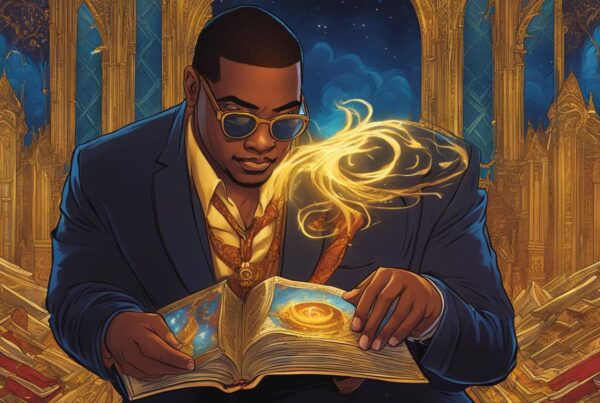“Elegy for Iris” is a touching memoir written by acclaimed writer and scholar John Bayley. The book explores the complexities of love, memory, and loss through the story of Bayley’s wife, Iris Murdoch, a renowned philosopher and novelist who was diagnosed with Alzheimer’s disease. The memoir is a powerful tribute to their enduring love and a poignant reflection on the human experience of aging and mortality.
Key Takeaways:
- “Elegy for Iris” is a memoir written by John Bayley.
- The book explores the themes of love, memory, and loss through the story of Bayley’s wife, Iris Murdoch.
- “Elegy for Iris” is a tribute to their enduring love and a reflection on the human experience of aging and mortality.
About the Author – John Bayley
John Bayley was an English writer and scholar born in Oxford, England, in 1925. He was best known for his literary criticism and memoirs, including his most famous work, “Elegy for Iris.” Bayley was educated at Oxford University, where he later served as a lecturer and fellow of St. Catherine’s College.
Bayley had a lifelong love affair with literature and was an accomplished writer, winning numerous accolades and awards throughout his career. His works explored the complexities of human relationships and the joys and sorrows of life.
Bayley’s personal life deeply influenced his writing. His marriage to the beloved and iconic author, Iris Murdoch, was the subject of “Elegy for Iris,” a memoir that chronicled their life together and her subsequent battle with Alzheimer’s disease.
John Bayley’s legacy as an author and scholar burns brightly as a testament to his deep love of literature and life.
The Story Behind “Elegy for Iris”
“Elegy for Iris” is a heart-wrenching memoir written by John Bayley that tells the story of his wife’s life and illness. The book was inspired by Bayley’s experiences and the life of his wife, Iris Murdoch, a famous writer, and philosopher.
The true story behind “Elegy for Iris” is a moving one. Bayley’s wife, Iris, was diagnosed with Alzheimer’s disease, and her illness had a profound impact on his life and theirs as a couple. Through “Elegy for Iris,” Bayley shares his experiences, providing readers with a glimpse into the difficulties of caring for a loved one with Alzheimer’s.
Inspired by his wife’s life, Bayley wrote “Elegy for Iris” as a tribute to her and their life together. The book’s emotional power lies in its honest and raw portrayal of the couple’s relationship, their love, and their struggles with illness and aging.
“Her memories all vanished overnight like a sandcastle melting in the tide.”
Bayley’s memoir is a powerful portrayal of loss and grief, but it is also a celebration of the life and legacy of his wife. Through his writing, he honors Murdoch’s achievements and contributions to literature and philosophy.
“Elegy for Iris” is a breathtaking memoir that will leave readers feeling both heartbroken and inspired.
Summary of “Elegy for Iris”
In “Elegy for Iris,” John Bayley writes a poignant memoir about his wife, acclaimed author Iris Murdoch, and their life together. The book explores the complexities of their relationship and the challenges they faced as Murdoch’s health declined due to Alzheimer’s disease.
The plot revolves around Bayley’s memories of his life with Murdoch, from their early days together to her final years. Key events in the book include their courtship and marriage, Murdoch’s rise to fame as an author, and her eventual decline due to Alzheimer’s. Throughout the book, Bayley grapples with his own emotions as he watches his wife’s condition worsen.
The characters in “Elegy for Iris” include Bayley, Murdoch, and various family members and friends. Murdoch is portrayed as a vibrant and intelligent woman, even as her disease takes hold. Bayley’s portrayal of her is both loving and honest, as he recounts their life together and the impact her illness had on them both.
The themes explored in the book include love, loss, memory, and the complexities of relationships. Bayley delves into these topics throughout “Elegy for Iris,” offering readers a glimpse into his own experiences and emotions.
“Elegy for Iris” is a moving and honest portrayal of love, loss, and the complexities of human relationships. Through his powerful memoir, John Bayley pays tribute to his wife, Iris Murdoch, and provides a touching reflection on their life together.
Themes Explored in “Elegy for Iris”
John Bayley’s memoir, “Elegy for Iris,” delves into complex themes that provide readers with a deeper understanding of the book’s underlying messages. The book explores the intricate nature of love, loss, memory, and the complexities of relationships. Through his writing, Bayley reveals the intricacies of his relationship with his wife, revealing the emotional journey of their lives together and apart.
One of the principal themes in the book is love, which is explored in different dimensions. The love between Bayley and his wife, Iris, is the backbone of the story and is portrayed in a way that touches the reader’s heart. The book also delves into the intricate nature of human relationships and how they work, providing readers with insights into the dynamics of human interaction.
Loss is another central theme in “Elegy for Iris.” Bayley’s memoir explores the pain and emptiness that follows the loss of a loved one, delving into the emotional struggle that accompanies such grief. The book provides a nuanced portrayal of the depth of grief, revealing Bayley’s pain while offering readers comfort in their own struggles.
“And so love will be when I am dead. It will heal again and bring joy, but for me, but for me, it will be gone forever.”
Memory is also a prevalent theme in the book, with Bayley reflecting on his life with Iris and their shared moments. He reveals the importance of memory and the impact of memory loss, providing readers with insights into the human mind and its intricacies. The book highlights the power and significance of memories, both good and bad, in shaping human experience.
The complexities of relationships are another central theme explored in “Elegy for Iris.” Bayley portrays the multifaceted nature of human relationships, exploring the conflicts, joys, and complexities that come with human interaction. The book underscores the importance of communication and understanding, highlighting the significance of empathy in resolving conflicts and nourishing relationships.

Through his evocative writing, John Bayley explores profound themes that resonate with readers, providing them with a deeper understanding of the human experience. “Elegy for Iris” is a powerful memoir that captures the essence of what it means to love and lose, offering readers an emotional journey that lingers long after the final page.
Character Analysis
In “Elegy for Iris,” John Bayley expertly brings to life three main characters, each with their unique traits and significance to the story. At the forefront of the memoir is Iris Murdoch, Bayley’s wife, who is depicted as a brilliant, albeit complicated woman. We see her deteriorating mental health through Bayley’s eyes, and her eventual diagnosis with Alzheimer’s disease marks a turning point in the book’s narrative.
Bayley himself is another main character, portrayed as patient, caring, and fiercely devoted to Iris, despite her declining health. His humor and wit bring a lightheartedness to the memoir, offering some relief to the otherwise somber tone.
The final major character is “the other woman,” the woman whom Bayley has an affair with while Iris is still alive. Her character serves as a reminder of the imperfections and complexities of human relationships, and the tense dynamic between the three characters creates a palpable sense of emotional tension.
“In ‘Elegy for Iris,’ Bayley provides a nuanced depiction of the human condition through his portrayal of the book’s three main characters.”
Writing Style and Structure
The writing style and structure of “Elegy for Iris” contribute significantly to the book’s overall impact. John Bayley’s prose is emotive, poetic, and deeply personal, drawing readers into his world of love and loss. His writing style is reflective and introspective, taking readers on a journey through his memories and feelings, which is why this memoir style book is a masterpiece.
Bayley’s use of language is particularly noteworthy, with vivid imagery and rich descriptions that capture the essence of the people and places he writes about. His narrative techniques, such as the use of flashbacks and foreshadowing, add depth and complexity to the book, creating an engaging and thought-provoking read.
The structure of the book is also well-crafted, with a non-linear timeline that reflects the fragmented nature of memory. Bayley’s use of short chapters adds to the poetic quality of the book, with each chapter feeling almost like a standalone essay or poem. This structure allows readers to slowly immerse themselves in the themes and ideas explored in the book, making it a perfect read for someone who truly desires to get lost in the journey.
“Elegy for Iris” is a testament to Bayley’s skill as a writer and his ability to capture the complexities of human emotion in the written word.
Critical Reception
Upon its release, Elegy for Iris garnered widespread critical acclaim for its poignant and heartfelt portrayal of love and loss. Many reviewers praised Bayley for his raw and honest writing style, which evokes a powerful emotional response from readers. The book resonated with audiences and critics alike, cementing its place as a classic in the genre of memoirs.
“Bayley’s memoir is a beautiful and heartbreaking tribute to his wife. The honesty and vulnerability with which he writes make this a must-read for anyone who has experienced loss.” – The New York Times Book Review
“Elegy for Iris is a masterpiece of memoir writing. Bayley’s prose is both poetic and profound, encapsulating the complexities of relationships and the human experience of grief.” – The Guardian
The book’s critical reception also led to several awards and nominations, including the Whitbread Book Award and the Los Angeles Times Book Prize.
The critical reception of Elegy for Iris underscores the book’s impact on readers and the literary world. Its powerful message and beautifully crafted prose continue to resonate with audiences today.
Impact and Legacy
The impact of “Elegy for Iris” was profound, resonating with readers all over the world. The memoir was widely praised for its beautiful prose and heartfelt storytelling, drawing readers into the poignant journey of love and loss.
John Bayley’s honest and raw account of his relationship with his wife, Iris Murdoch, left a lasting impact on the literary world. The deeply personal story of the couple’s struggles with Iris’ Alzheimer’s disease struck a chord with readers, creating a sense of empathy and understanding of the devastating impact of the condition.
Today, “Elegy for Iris” continues to be celebrated as a powerful and touching memoir, leaving behind a legacy that encourages readers to appreciate the beauty of life, cherish their loved ones, and embrace the complexities of the human condition.

Similar Works or Recommendations
If you enjoyed reading “Elegy for Iris,” we recommend checking out the following books:
| Book Title | Author | Similar Theme |
|---|---|---|
| The Year of Magical Thinking | Joan Didion | Dealing with grief and loss |
| A Heartbreaking Work of Staggering Genius | Dave Eggers | Coming-of-age memoir dealing with loss and family |
| When Breath Becomes Air | Paul Kalanithi | Dealing with terminal illness and legacy |
These recommended books offer a similar theme to “Elegy for Iris,” and delve into the complexities of loss, love, and relationships.
Film Adaptation
“Elegy for Iris” has been adapted into a film version, capturing the essence of the book beautifully on screen. The movie was directed by Richard Eyre and stars Jim Broadbent as John Bayley and Judi Dench as Iris Murdoch. The film adaptation was released in 2001 and received critical acclaim, earning Judi Dench an Oscar nomination for Best Actress.
The movie captures the heart-wrenching moments of the book, staying true to the characterizations and emotional resonance of Bayley’s writing. Eyre uses a non-linear narrative structure, weaving together past and present timelines, and allowing the audience to sink deeper into the themes of grief, love, and memory. The film version stays true to Bayley’s portrayal of the unconventional love between him and Murdoch, shedding light on the complexities of relationships and the raw human emotions that arise in the face of illness and death.
Discussion and Book Club Questions
For book clubs or personal reflection, here are some discussion questions that delve deeper into the themes and ideas presented in “Elegy for Iris”:
“Elegy for Iris” is a tribute to the enduring power of love. How did you relate to Bayley’s portrayal of love in the book?
One of the central themes in the book is memory. Discuss the importance of memory in the story and its impact on the characters’ lives.
Bayley explores the complexities of relationships in the book. What do you think the book says about the nature of love and relationships?
“Elegy for Iris” deals with the subject of death and loss. How does Bayley cope with the loss of his wife, and what does the book suggest about the process of grieving?
The book’s structure is non-linear, alternating between different periods of time. Discuss how this affects the reader’s experience of the narrative.
These questions are only a starting point for discussion. Feel free to add your own questions or thoughts as you delve deeper into “Elegy for Iris.” Happy reading!
Conclusion
In conclusion, “Elegy for Iris” is a poignant and heartfelt memoir that explores the complexities of love and loss. John Bayley’s writing is both powerful and touching, offering readers a glimpse into his personal journey and the woman he loved. The book’s themes of memory, relationships, and the human condition have resonated with audiences worldwide, cementing its place as a literary classic.
Through this article, we have explored the story behind “Elegy for Iris,” analyzed its major themes and characters, and delved into its critical reception and impact. We have also provided recommendations for readers who enjoyed the book and discussion questions for book clubs or personal reflection.
Overall, “Elegy for Iris” is a must-read for anyone seeking a deeply emotional and thought-provoking memoir. It serves as a testament to the power of love and the endurance of the human spirit in the face of tragedy.
FAQ
What is “Elegy for Iris” about?
“Elegy for Iris” is a memoir written by John Bayley that chronicles his life with his wife, Iris Murdoch, and their journey through her battle with Alzheimer’s disease.
Who is the author of “Elegy for Iris”?
The author of “Elegy for Iris” is John Bayley, an English writer, literary critic, and academic who was married to the renowned novelist Iris Murdoch.
What inspired John Bayley to write “Elegy for Iris”?
The true story of John Bayley’s relationship with Iris Murdoch, their love, and the challenges they faced as she gradually lost herself to Alzheimer’s disease inspired him to write “Elegy for Iris.”
What can I expect from the summary of “Elegy for Iris”?
The summary of “Elegy for Iris” provides a comprehensive overview of the book, including its key events, characters, and themes that delve into the complexities of love, loss, and memory.
What are the major themes explored in “Elegy for Iris”?
“Elegy for Iris” delves into themes such as love, loss, memory, and the complexities of relationships, offering readers a deeper understanding of the human experience and the fragility of life.
Who are the main characters in “Elegy for Iris” and what are their roles?
The main characters in “Elegy for Iris” are John Bayley and Iris Murdoch. John Bayley is the author himself, narrating their life together, and Iris Murdoch is his wife, a prominent novelist who battles Alzheimer’s disease.
What is the writing style and structure of “Elegy for Iris”?
“Elegy for Iris” is written in a poignant and reflective style, capturing the emotions and challenges faced by the author and his wife. The book follows a chronological structure, highlighting key moments in their relationship.
How was “Elegy for Iris” received by critics?
“Elegy for Iris” garnered positive reviews from critics, who praised John Bayley’s raw and honest portrayal of his relationship with Iris Murdoch and his exploration of love and loss.
What is the impact and legacy of “Elegy for Iris”?
“Elegy for Iris” touched the hearts of readers around the world, resonating with its authentic portrayal of love, loss, and the complexities of human relationships. It remains an important memoir in the literary world’s exploration of Alzheimer’s disease.
Can you recommend similar books or works related to “Elegy for Iris”?
If you enjoyed “Elegy for Iris,” you may also be interested in reading “Still Alice” by Lisa Genova and “The Hour of the Star” by Clarice Lispector, both of which explore themes of memory, loss, and identity.
Has “Elegy for Iris” been adapted into a film?
Yes, “Elegy for Iris” has been adapted into a film titled “Iris.” Directed by Richard Eyre, the film stars Judi Dench as Iris Murdoch and Jim Broadbent as John Bayley. It received positive reviews for its sensitive portrayal of their life together.
Are there discussion questions available for book club conversations about “Elegy for Iris”?
Absolutely! Here are some discussion questions to explore the themes and ideas presented in “Elegy for Iris”:
1. How does John Bayley’s portrayal of his relationship with Iris Murdoch impact your understanding of love and loss?
2. In what ways does “Elegy for Iris” challenge societal perceptions of Alzheimer’s disease and its effects on relationships?
3. How does the writing style and structure of the book contribute to its emotional impact?
4. Discuss the role of memory in “Elegy for Iris” and its significance in understanding the characters’ experiences.
5. How does “Elegy for Iris” explore the complexities of human relationships and the sacrifices made for love?



